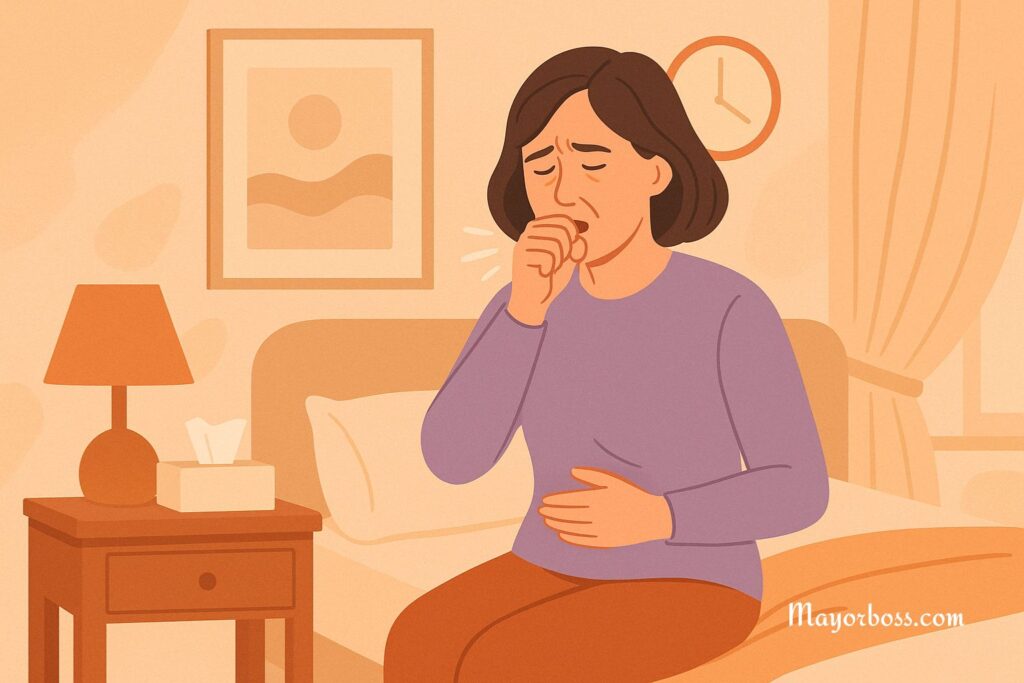Signs of Zinc Deficiency You Might Miss
Zinc is a mineral your body needs in small amounts, but its role is powerful. It supports your immune system, helps wounds heal, supports growth and development, and even keeps your sense of taste and smell working properly. Since zinc is involved in many body functions, a lack of it can show up in unexpected ways. 1However, these signs are often easy to miss or confuse with other health problems.
Let’s explore some common — but often overlooked — signs of zinc deficiency.

1. Frequent Illnesses or Infections
If you often catch colds, flu, or infections, your zinc level might be low. Zinc helps white blood cells fight off bacteria and viruses.2 When you don’t have enough, your immune system becomes weaker. You may notice that you take longer to recover or get sick more often than usual.
2. Slow Wound Healing
Zinc plays a key role in tissue repair. If your cuts, scrapes, or wounds take a long time to heal, it could be a red flag. Without enough zinc, your body struggles to rebuild damaged tissue and control inflammation during healing.
3. Loss of Taste or Smell
Zinc is essential for the proper function of taste and smell receptors. If food suddenly seems bland, or you have trouble detecting scents, this could signal a zinc deficiency. This symptom is especially common in older adults.3
4. Hair Loss
Hair shedding can happen for many reasons, but a lack of zinc is one possibility. Zinc supports healthy hair follicles. Without enough of it, hair may become weak and start to fall out. Some people even develop thinning hair or bald spots.
5. Skin Problems
Dry, rough, or inflamed skin may be a sign that your body is low in zinc. Eczema-like rashes, acne flare-ups, or red, cracked skin around the mouth or hands can all be linked to this deficiency.4 Zinc supports skin cell growth and repair.
6. Diarrhea
Chronic or frequent diarrhea may actually cause or result from low zinc levels. Zinc helps keep the lining of the gut strong and supports healthy digestion. Children and older adults are more likely to have this symptom if they lack enough zinc.
7. Poor Appetite
Low zinc levels can affect hunger hormones. If you’re not feeling hungry as often, or your appetite has dropped for no clear reason, your zinc level could be too low. This is especially true if the appetite loss happens with other symptoms like taste changes or weight loss.
8. Trouble Concentrating
Zinc affects brain function, including memory and thinking skills. People with zinc deficiency may notice brain fog, trouble focusing, or even signs of depression. Children who don’t get enough zinc may have slower learning and development.
9. White Spots on Nails
Your nails can reveal a lot about your health. If you notice white spots or ridges on your nails, it may signal a nutrient imbalance — including low zinc. These changes often show up after physical stress or injury when your body doesn’t have enough zinc to support nail growth.
10. Eye Issues
5Zinc supports healthy vision. Without it, your eyes may be more sensitive to light, dry, or irritated. Several studies report that over time, low zinc levels may also raise the chance of night blindness or age-related vision problems.
Who Is Most at Risk?
Some groups are more likely to have low zinc levels:
- Older adults – They often absorb less zinc from food.
- Vegetarians and vegans – Plant-based diets can lower zinc absorption.
- People with digestive issues – Conditions like Crohn’s, ulcerative colitis, or chronic diarrhea can reduce zinc absorption.
- Pregnant or breastfeeding women – Their bodies need more zinc to support the baby.
- Alcohol users – Alcohol can reduce zinc absorption and increase loss through urine.
How to Get More Zinc
Zinc is found in many foods, especially:
- Meat (beef, lamb, pork)
- Shellfish (especially oysters)
- Poultry (like chicken and turkey)
- Dairy products
- Beans and lentils
- Nuts and seeds
- Whole grains
You can also take zinc supplements, but it’s important not to overdo it. Too much zinc can cause nausea, stomach pain, or interfere with other important minerals like copper.
When to See a Doctor
If you have several of these signs or belong to a higher-risk group, talk to your doctor. A blood test can confirm if your zinc level is too low. Your doctor can help you choose the right treatment — whether through diet changes, supplements, or both.
Final Thoughts
Zinc deficiency is more common than many people think. Because its symptoms often develop slowly and subtly, they can be missed or mistaken for other problems. Pay attention to these early signs. The sooner you correct a deficiency, the better your body can function and stay strong.
References:
- https://nutritionsource.hsph.harvard.edu/zinc/ ↩︎
- https://www.frontiersin.org/journals/nutrition/articles/10.3389/fnut.2024.1385591/full ↩︎
- https://pmc.ncbi.nlm.nih.gov/articles/PMC10017214/ ↩︎
- https://www.healthdirect.gov.au/zinc-deficiency ↩︎
- https://www.sciencedirect.com/science/article/pii/B978012401717700037X ↩︎
